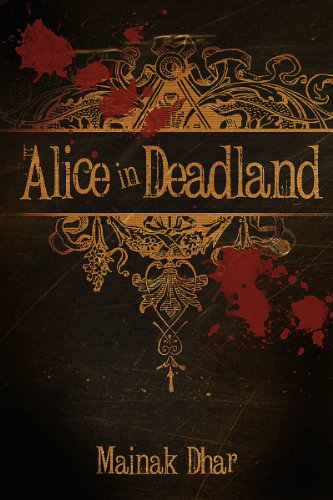Just the other day we announced that John Locke’s suspense-filled Maybe (A Donovan Creed Novel) was our new Thriller of the Week and the sponsor of thousands of great bargains in the thriller, mystery, and suspense categories: over 200 free titles, over 600 quality 99-centers, and thousands more that you can read for free through the Kindle Lending Library if you have Amazon Prime!
Now we’re back to offer our weekly free Thriller excerpt, and we’re happy to share the news that this terrific read is still just 99 cents for Kindle Nation readers during its TOTW reign!
Maybe (a Donovan Creed Novel)
by John Locke
When an angry, unemployed chemist unleashes a bio-terrorist attack against women and children, the president of the United States asks Donovan Creed to get involved. It’s just one more thing on Creed’s plate.
New York Times Best Selling Author John Locke was the 8th author in history to sell more than one million books on Amazon/Kindle. His books sold more than 1,720,000 copies in 2011.
6-stars. Amazing read! I can’t believe I didn’t buy this on the day it came out (I used to check every week till November but then stopped). These are my favorite go-to books (I re-read books all the time). I hope there are >20 more in the series.– Vidur Singhal, Amazon Reviewer, 5 StarsThe master has done it again! I can hardly believe this guy how he changes a story and things happen you would never think of! he makes you laugh out loud sometimes! His wit and insight make you want more, more, more! After nine or ten books I’ve read John Locke has became my favorite author without a doubt! Check out all his books when you get a chance, you wont be regret it! Good going John! what your going to do next God only knows!– Amazon Reviewer, 5 Stars
* * *
INTRODUCTION
Miles Gundy.
PEOPLE ARE SCREAMING.
Sunday, last week of May, Derby City Fair, Louisville, Kentucky. Food and people everywhere. Rock bands. Tents. Roaring rides, rumbling roller coasters.
…People are screaming.
Not from rock bands or rides.
People are screaming!
Women’s hands. Babies’ faces and children’s hands are suddenly…melting.
The Derby City Fair is under attack.
But from whom?
And how can the attack be isolated to babies’ faces and women and children’s hands?
Within minutes, hundreds of cell phones call 911. Hundreds more record the victims and post the videos on YouTube.
The system designed to work swiftly does so. 911 operators contact police, police call the FBI, the Feds call Homeland Security, and by the time Miles “Mayhem” Gundy pulls his late model Honda Accord onto 1-65 South, Homeland Security has Lou Kelly on the phone. Homeland patches the president into the call, along with several members of the Pentagon, who have assembled in the War Room at the White House.
“Where’s Darwin?” the president asks.
“We couldn’t find him,” a man says.
“Who’s Lou Kelly?”
“Associate Director, Sensory Resources.”
“Mr. Kelly,” the president says, “What’s happened to Darwin?”
“I have no idea, sir,” Lou says. “But I stand ready to help.”
“Good man. Mr. Kelly, you’re on the phone with Sherm Phillips, Secretary of Defense. Sherm, tell Mr. Kelly what you told me. We need to know what we’re up against.”
Sherm Phillips does, and Lou tells the president of the United States to hold while he calls Donovan Creed.
Donovan Creed.
My daughter, Kimberly Creed, and I are visiting Callie Carpenter at her Las Vegas penthouse. I just told Callie that Kimberly’s on the team.
Callie looks amused.
“That seems funny to you?”
She looks at Kimberly. “Mildly so.”
I run a group of assassins for a branch of Homeland Security called Sensory Resources. Darwin’s my boss. Callie’s my top operative. We also do freelance hits for the mob.
Callie says, “When you called from the airport you said Lou Kelly killed Darwin.”
“That’s Lou’s story.”
“Seems unlikely,” Callie says.
“I agree. But why would he lie?”
“Well, he did try to kill you recently.”
“True,” I say.
Kimberly’s eyes grow wide. “I don’t understand. Why would Uncle Lou try to kill you or your boss?”
Lou isn’t related to us, but Kimberly’s term of endearment shows how close he’s become to our family. I don’t mind her calling him uncle, though like Callie said, he tried to kill me last year. That incident set our relationship back somewhat, but Lou’s a valuable asset, best in the world at what he does, and he’s gotten me out of some tight spots over the years. What I’m saying, when he’s not trying to kill me, I trust him with my life.
Sounds crazy, right? But that’s the type of business I’m in.
I give Kimberly the short answer. “Last year we conducted a sting operation. Large sums of money were involved, and Lou saw a chance to make billions if he could kill me. He couldn’t, but I gave him a second chance. To prove his loyalty, Uncle Lou killed Doc Howard, who he claims was my boss, Darwin. He said Darwin was trying to kill me.”
Callie says, “What part will Kimberly play on the team?”
“Believe it or not, she’s an accomplished assassin.”
Callie looks dubious.
“Remember Jimmy T?” I say.
“The one who guarded Kimberly last year?”
I nod. “He quit the business and became a professor at Viceroy College. His real name was Jonah Toth. Kimberly put him down in the men’s room.”
Callie arches an eyebrow. “I’m impressed.”
Most people would ask why Kimberly killed Toth. Not Callie. She could care less why. That’s what makes her the world’s best assassin, aside from me.
“Including Toth, she’s got nine notches on her belt,” I say.
“You must be so proud,” Callie says, with more than a little sarcasm.
“From now on, we’ll call her Maybe. Maybe Taylor.”
“I like it,” Callie says.
Maybe says, “And I should call you Creed, like everyone else.”
“Good point. No sense in broadcasting the fact you’re my daughter.”
From the kitchen Gwen Peters yells, “You’re ignoring me again!”
Gwen is Callie’s current love interest. I dated her first, but Callie stole her from me. Kimberly—I mean, Maybe—has met Callie before, but this is her first exposure to Gwen.
“Every time that man enters our house you completely ignore me,” Gwen pouts.
Callie smiles and says, “That man.”
I smile and say, “Our house.”
Callie says, “That man is worse than our house.”
I agree.
“Hard to imagine how quickly I’ve sunk so far,” I say. “What’s she doing in there, anyway?”
“Burning cupcakes.”
“Seriously?”
“She’s the world’s worst cook.”
“Maybe I should tell her you said that.”
“Maybe I should tell her about Rachel.”
My phone buzzes in my pocket. I check the screen.
“It’s Lou,” I say.
Callie turns to Maybe and says, “Let’s go salvage the cupcakes.”
As they walk from den to kitchen, I say, “What’s up, Lou?”
“Donovan, I’ve got Homeland Security on the phone, several members of the Pentagon, and the president.”
“Hello, Mr. President,” I say.
A voice says, “This is Sherm Phillips, Secretary of Defense. The President’s monitoring the call, so I’ll cut to the chase. We’ve got word of a bio-terrorist attack at the Derby City Fair in Louisville, Kentucky.”
“How can I help?”
“Lou Kelly says you understand terrorists better than anyone in the country.”
“I won’t argue the point.”
“He says you understand how they think. We’re blind on this one, and need to know what’s happened.”
I get a whiff of burnt cupcakes from the kitchen, put my hand over the phone, and yell, “Are you frosting them?”
“We are,” Maybe says. “You want one?”
“Chocolate, if you have it,” I say.
Back on the phone I ask Sherm, “What do you know for certain about the attack?”
“No bombs detonated, but people’s hands and faces have been affected.”
“Affected how?”
“The flesh is falling off their bones.”
“Can you be more specific?”
“People’s hands, babies’ faces—appear to be melting.”
“How many victims?”
“Somewhere around twenty.”
My mind starts racing.
“Babies?”
“That’s right.”
“Their entire face or just the lips and cheeks?”
There’s a pause. “Lips and cheeks. How’d you know?”
“You said people’s hands. Is it mostly women and children?”
“Yes.”
“When you say their flesh is falling off the bone. Which side of their hands is worse, the palms or the back of the hands?”
“Does it matter?”
“What do you think?”
“Hold on.”
Sherm clicks back on and says, “It’s worse on the palms.”
“Hand sanitizer,” I say.
“Excuse me?”
“Ask if they have plastic hand sanitizing stations at the fair.”
“Why?”
“My first guess? This is an urban terrorist, acting alone. He’s putting a chemical agent in the public hand sanitizers. Some type of acid. Mom pushes the plunger, foam comes out, she rubs her palms together, then the top of her hands, then pumps some more and rubs it on her baby’s hands and cheeks. She can’t leave the toddlers out, so she pumps again and wipes their hands. For some reason the acid effect is delayed. But after a time, it starts burning holes in their hands and cheeks.”
I hear Sherm in the background. He’s on another line, asking if they have hand sanitizing stations at the fair.
Callie, Maybe, and Gwen enter the room. Gwen places a tray of cupcakes on the coffee table. Each lady has her own unique style of attack, but when Gwen licks her frosting the temperature in the room goes up five degrees.
A new voice comes on the line.
“Mr. Creed.”
“Yes, Mr. President?”
Callie arches her eyebrows.
“You asked if they had plastic hand sanitizing stations at the fair. Why plastic?”
“Plastic resists acid erosion.”
There’s another pause. Then the president says, “There are two stations on the midway, two in the exhibit buildings. All four have plastic reservoirs. I think you’ve done us a great service.”
“Thank you sir.”
He says, “It terrifies me to know there are people like you in the world.”
“Rest easy, Mr. President. I’m on your team.”
“That’s what frightens me.”
I say, “You understand this is just the beginning?”
“What do you mean?”
“You need to get the word out to all airports, public buildings, private businesses, anyone who uses plastic dispensers in bathrooms or work spaces. Especially Louisville, and the surrounding cities and towns.”
“You’re joking.”
“Not remotely.”
“You said it’s one man, acting alone.”
“That’s what makes him so dangerous.”
“We need to catch him.”
“Good luck with that.”
He pauses. “Could you catch such a man?”
“If he continues attacking? Yes. But it’ll take time.”
“How much time?”
“If he stays busy? Days or weeks.”
“Then catch him.”
“I’ll need the full cooperation and resources of government and law enforcement.”
“Excuse me?”
“I’ll need the highest possible clearance.”
“You’re joking.”
“Total access, Mr. President. Nothing less.”
He says, “I wouldn’t give a man like you access to a dog turd.”
“Thank you, Mr. President.”
The line goes dead.
Maybe says, “You were talking to the president just now?”
“Yes.”
“Of the United States?”
Gwen makes a face and says, “Bullshit. He was just trying to impress me. He’ll say or do anything to get in my pants.”
She looks at me and says, “It won’t work.”
Her tongue flicks at the frosting again and again, and I see she’s making little sculptures on her cupcake. Callie catches me staring.
“Down boy,” she says.
2.
LOU CALLS ME back.
“Good call on the hand sanitizer,” he says.
“Any deaths yet?”
“No. But they’re going to be permanently disfigured.”
“That bothers me.”
“Me too. Wait. Which part?”
“The acid should start burning mom’s hands immediately. But there’s a delayed reaction of what, ten, maybe fifteen minutes? Possibly longer?”
“You’re trying to guess how long it would take him to put acid in all four sanitizing stations?”
“I am. Ask the Louisville PD how far apart the stations are, from first to fourth.”
“Will do.”
“And ask the geeks how he managed to delay the effect.”
Lou’s geek squad possesses the finest computer minds and researchers on the planet. It’s one of the reasons I keep him on my personal payroll.
“I’ll run it by them,” he says. “Anything else?”
“I want to know every victim’s name. I want to see their before and after photos.”
“Even the babies?”
“Especially the babies.”
“This will help you find him, somehow?”
“No. But it’ll help me want to. And Lou?”
“Yeah?”
“When the scientists isolate the chemical agent, we need to learn who manufactures it, who distributes it, and how our urban terrorist got hold of it.”
“What type of person are we looking for?”
“A chemist.”
“Corporate?”
“Yes. Or a high school chemistry teacher, college professor, or grad student with a chemistry major.”
“That’s a pretty wide range.”
“First cut.”
“What do you mean?”
“Everyone with a chemistry background has survived the first cut. As Felix continues terrorizing people, we’ll narrow the possibilities accordingly.”
“Felix?”
“We need to call him something besides the urban terrorist.”
I hang up and tell Callie and Maybe about Felix and what he’s done.
“Sounds like a kid’s book,” Maybe says. “Felix at the Fair?”
Callie says, “I thought we were going to war against Darwin.”
“We are. If he’s alive.”
“Then what’s all this about finding Felix?”
“We’re a long way from finding Felix. But it’ll keep Lou busy while I try to figure out if Darwin’s still alive.
3.
Sam Case.
THE GOVERNMENT FACILITY at Mount Weather, near Bluemont, Virginia, includes an underground bunker called Area B, which is the size of a small city. Area B was built to withstand repeated strikes from nuclear weapons. More than 600,000 square feet in size, Area B contains a hospital, crematorium, dining and recreational facilities, self-contained power plants, and is equipped to broadcast TV and radio signals.
Area B is where Sam Case lives and works for the government, developing a synthetic cure for the Spanish Flu, a virus so deadly it decimated one-third of the earth’s population in 1918. The thing about the Spanish Flu, there’s no cure. First time around, it nearly wiped out the planet.
Next time it’ll be worse.
And there will be a next time.
Like many government employees, Sam’s in no hurry to solve the problem he’s been hired to solve. But Sam’s motivation isn’t about steady employment. It’s about self-preservation. Sam’s life is in jeopardy, and Mount Weather is the only place on earth his enemies can’t get to him.
What you want to know about Sam Case, he’s one of the world’s most brilliant people. More than a year ago he had a thriving business and a hot wife, Rachel. His business involved moving billions of dollars electronically from bank to bank, all over the world, twenty-four hours a day, effectively hiding it for the world’s most ruthless dictators and criminals. The modest fees he charged earned him millions of dollars, and life was good.
Enter Donovan Creed.
Creed also parked a sum of money with Sam, but unlike the others, he saw an opportunity to cash in. He broke into Sam’s house, lived secretly in his attic, and eventually breached Sam’s security and stole billions of dollars from Sam’s clients.
He also stole Sam’s wife, Rachel, who’s certifiably insane.
She’s also one of only two people in the world known to possess a gene that’s resistant to the Spanish Flu.
Rachel also lives in the underground bunker in Area B.
But not by choice.
Government scientists are holding her captive, harvesting her eggs, and hoping to create a generation of children who will inherit the gene. Until Sam or some other scientist can create a synthetic response to the Spanish Flu, Rachel must remain there.
Sam considers Donovan Creed his arch enemy. Such is his hatred for Creed, he’d give ten years of his life to make Creed suffer a day.
Sam measures his life in terms of victories he’s won over Creed.
His first was separating Creed and Rachel. He orchestrated Rachel’s capture, and manipulated scientists into letting him live and work in Area B so he could be near her. Sam’s sperm is being used to create the new children from Rachel’s eggs. Having sole access to Rachel, and being the man responsible for creating children with her, Sam hoped, over time, to win back his wife’s affection.
Not that he wants the bitch. He only wants to sleep with her. And only because it would be another way to punish Creed.
Pretty sad when the victory you hope to claim over your arch enemy involves sleeping with your own wife.
But Rachel has no interest in sleeping with Sam, so that part—that one small part—is another victory for Creed.
Worse, Creed doesn’t seem overly broken up over the fact his girlfriend is stuck in Area B for what could be years.
Sam’s second victory involves Creed’s daughter, Kimberly.
Sam’s been fucking her.
What makes it particularly sweet, he’s manipulating her into loving him.
And Creed, the deadliest assassin on earth, hasn’t a clue.
The man who made this revenge possible is another of Creed’s enemies, Doc Howard. For all practical purposes, Kimberly is Sam’s car, and Doc Howard gave him the keys to her ignition.
Doc Howard expects to be compensated.
For starters, he demanded that Sam locate the Bin Laden death photos. These, like many of the world’s most sensitive documents, are stored in the underground vault at Area B.
Sam has no idea what Doc Howard plans to do with the photos, but it’s best to stay on Doc’s good side. He’s a very dangerous and powerful man in his own right.
Sam used his hacking skills to locate and copy the digital files.
He’s looking at them now, with mild interest. When he’s finished looking, he encrypts the photos, and types a code to bypass computer security for twelve seconds while he forwards them to Doc Howard’s email account.
Doc gets some stupid photos, Sam gets Kimberly Creed.
He presses a button on his cell phone.
Kimberly answers, using her alias.
“Maybe Taylor.”
4.
Maybe Taylor (Kimberly Creed).
“HI MAYBE,” SAM says. “How’s tricks?”
“I can’t talk now,” she whispers. “I’m with my father.”
“In Vegas?”
She works her way out of the den, onto Callie’s balcony. “Okay, I can talk now. Yeah, I’m in Vegas.”
“I miss you,” Sam says.
Maybe smiles. “That’s ridiculous. It’s only been a day.”
“Seems like forever.”
She likes being the one with power in the relationship. It lets her be cool, lets her say things like, “Don’t fall in love, Sam.”
Which forces him to say, “Sorry. Too late.”
“Are you still planning to divorce your wife,” she says, “or was that something you said to get in my pants?”
“We’re definitely divorcing. The papers are being drawn up this week. She’s already agreed to sign them.”
“Don’t do it hoping to marry me,” she says.
“Why not?”
“We’re never going to be a couple.”
He changes the subject. “I’ve found a guy to do your boob job.”
She laughs. “I hope it’s a doctor and not just some guy.”
“Don’t worry. Your boobs will soon be in the hands of a highly-skilled surgeon.”
“Odd way to put it,” she says.
“It seems insane to pay another man to put his hands on your body. He should pay you for the privilege.”
“Hmm. Maybe I should charge you next time!”
“If that’s what you want, I’ll gladly pay.”
“Assuming there’s a next time,” she says, then smiles, noting his silence. Maybe loves being able to manipulate him for a change. For the past year he’s been a demanding, judgmental father figure. Now, after one night in the sack, she’s turned him into a lovesick puppy. Sam spent a year scrambling his voice, manipulating her over the telephone, and all that time he thought he was in charge. Now he’s met her, had sex, and his power has crashed and burned. He’s fallen head over heels for her, and she loves it.
He says, “There has to be a next time.”
Maybe can hardly contain her joy. In truth, she expected he’d probably never call after getting what he wanted. That’s happened more than once with boys in the past, so she assumed a grown man would be even more aloof.
Especially a married man like Sam.
But as it turns out, she has the power to make him happy or sad. It’s an amazing feeling, one she’s never experienced.
Sam says, “I have to have you again.”
“Why?”
“Excuse me?”
“What’s the big deal?”
He sighs.
She loves it when he sighs. He’s frustrated, working hard to win her affection.
“You’re the best I ever had,” he says.
“The best what?”
“Lover.”
She smiles and says, “That can’t be true.”
“I’d take a lie detector test on it.”
“You’re older, wealthy, and married. This is all about you getting a little strange on the side. You probably fucked me, thinking of your wife.”
“That’s not true, Kimberly.”
“Wrong name, Sam.”
“Sorry.”
“You expect me to believe I’m the best you ever had?”
“Absolutely.”
“Have you forgotten my sexual issues? You had to inject my vagina with Botox to get it open. I felt nothing. It can’t have been a pleasant experience for you.”
“It’s not just the act, it’s the whole experience. It’s being with you, holding you, touching you. Helping you achieve sexual comfort. I know it sounds absurd, but I’ve never felt this way in my life. If you don’t like me calling it love, I’ll call it passion, though it’s love, passion, and a hundred other things combined. I’m not trying to push you, honey. But I have to have you. And yes, you’re the best I ever had.”
“The best what?”
“I already told you.”
“Say it again. Be vulgar.”
“The best fuck.”
“Say it again, with feeling.”
“You’re the best fuck I ever had!”
“Thanks, Sam.”
She feels something warm and exciting stirring within her…
And likes it.
“When can I see you again?” he says.
“I’m not sure. I’m working for him.”
“Who, your father?”
“Yes.”
“Have you told him about me?”
“He still thinks you’re a post-Rapture pet salesman.”
“Have you told him my real name?”
“He asked, but I refused. We’re still calling you Chuck.”
“If he demands to know my name, what will you say?”
“I’ll tell him to fuck off.”
“He’s your boss now,” Sam says.
“I freelance. I work for him, I work for you. If someone else comes along, who knows?”
“Prove it.”
“Prove what?”
“That you work for me.”
“How?”
“Kill him.”
“Who, my father?”
“Yes.”
She laughs. “I’d kill you before raising my voice at him.”
“I know. I was just kidding. But I think I’ve made my point. You obviously don’t work for me.”
“I’m not sure you understand what free-lance means, Sam. It means I get to accept a contract if I want it.”
“But if you work for me…”
“As I said, I work for both of you. But he comes first.”
Maybe smiles, knowing he’s pouting. Sam’s got it bad for her. It’d be so easy to take advantage of the situation.
She says, “Give me another way to prove my loyalty.”
“Kill someone for me.”
“Who?”
“I don’t care. As long as it’s someone your father knows.”
“He knows Doc Howard.”
Maybe notes the complete absence of sound on the other end of the line.
Finally, Sam says, “Did you say Doc Howard?”
“Yes.”
“You think you can kill him?”
“He’s already dead.”
“What?”
“One of my father’s people killed him. I just heard about it. Apparently he was far more than a skilled surgeon. He was one of the most powerful people in government. My father called him Darwin. He was my father’s boss.”
More silence.
And still more.
Finally Sam says, “Kill someone else your father knows. I want details.”
Maybe removes the phone from her ear and stares at it a moment while frowning. Is he serious? She puts the phone back to her ear.
“You seem to have forgotten the financial component,” she says.
“It’s all about the money to you.”
“That’s right.”
“Pleasing me means nothing to you?”
“Don’t pout, Sam. It’s a turn off.”
He sighs again. Then says, “Fine. Pick out a victim. Someone your father knows. Tell me who it is, and the connection, and I’ll formulate a price.”
Creed, Callie, and Gwen are sitting in the den, talking. Maybe watches them through the sliding glass door, and allows her gaze to settle on Callie. Creed certainly knows Callie. But Callie’s as deadly as Creed. And anyway, she likes Callie. She’s beautiful, smart, and cool, everything Maybe wants to be. Callie’s not a candidate for killing. There’s still too much to learn from her.
Gwen, on the other hand…
She looks at Creed, looking at Gwen.
Maybe’s not jealous of Gwen, doesn’t mind Creed looking at women that way. She wants her father to be happy, and bedding sexy women seems to make him quite happy.
If he’s happy, she’s happy.
She’s also not jealous that Gwen’s prettier and sexier than she is, and has great hair and a better body.
What she doesn’t like about Gwen is her disrespect.
Callie and Creed deserve to be respected. They’re elite killers. Gwen’s a twenty-year-old widow and former stripper. She’s got no right to disrespect Callie or Creed.
And yet she disrespected both of them.
Earlier, in the kitchen, Gwen made a nasty remark about how Creed tricked her into having sex with him. Callie’s eyes narrowed, and Maybe could tell it was a sore subject, though Gwen hardly seemed to notice or care.
Gwen cheated on Callie with Creed.
On the phone, Sam says, “You still there?”
“Yeah. Wait a sec.”
Maybe watches Gwen working it for them, licking the frosting off her fingers and lips like a porn star might do.
She’s center stage, full of herself.
Thinks she’s hot shit.
It’s disgusting.
Maybe didn’t notice it before, but Gwen’s wearing a particularly revealing outfit. Creed noticed. He’s noticing it now.
You know who’s a better match for Callie? she thinks to herself.
Creed!
Callie’s prettier than Gwen, and tougher, and she and Creed are in the same business. They work together, respect each other. Callie’s sexy, but doesn’t throw it all over the place like Gwen. With Gwen out of the way, Creed and Callie might find happiness, despite Callie’s apparent preference for women.
Maybe imagines holding a gun on Gwen, forcing her to her hands and knees.
Bark like a dog! she’ll say, and Gwen will bark.
Louder, bitch! and Gwen will howl.
Kiss my feet! she’ll say, and sexy, hot-shit Gwen will kiss Maybe’s feet.
“I’ve got someone in mind,” Maybe says.
“Who?”
“Gwen Peters.”
“Never heard of her.”
Maybe stares at her phone again, in disbelief.
“Why would you know her?”
“I wouldn’t. Who is she?”
“My father’s girlfriend.”
“You’re sure about that?”
“Why wouldn’t I be?”
“No reason. I’m just surprised to hear he has a girlfriend.”
“Why?”
“I don’t know. Forget I said it. Are they currently dating?”
“My father had sex with her a couple of times.”
“When?”
“What do you care?”
“Humor me. I’m trying to come up with a price.”
“I don’t know the first time. Second time was a few days ago. She’s Callie’s girlfriend.”
Maybe notes a distinct pause on the other end of the line.
Then Sam says, “Who’s Callie?”
“She works on our team.”
“Callie’s an assassin?”
“Yup.”
“Your father fucked Callie’s girlfriend?”
“Yup.”
“I bet that caused problems.”
“I suppose.”
“Tell me.”
“I don’t know much about it. And anyway, what do you care?”
“How old is Gwen?”
“Twenty.”
“Just like you.”
“So?”
“Is she pretty?”
“I suppose.”
“Are you jealous of Gwen?”
“Of course not!”
“You’re okay with it? Her having sex with your father?”
“Why wouldn’t I be? Oh, wait. I see. You think I want to fuck daddy. That’s ridiculous to the point you’re about to piss me off. That whole thing about how you made me call you Daddy last year? I told you before, it’s creepy as hell. And disgusting. You’re lucky I ever let you touch me, and I probably won’t, ever again.”
“Sorry. You’re right, of course. Still, you’d like to see Gwen suffer, wouldn’t you?”
Maybe can tell Sam’s trying to get in her head. She knows how to deal with him.
“Tell you what. I’ll pick someone else.”
“No!”
Maybe smiles.
Sam says, “I’ll pay you a hundred grand to terminate Gwen. But I want details.”
“She’s close to Callie and my father. You’ll have to provide the weapon. Something foolproof. If Callie finds out, I’m toast.”
Sam goes quiet a minute. Then says, “I’ve got something in mind. When can we meet?”
“You’ll come to Vegas?”
“I can be there tomorrow night.”
“Let me know when you get here.”
Continued….
Click on the title below to download the entire book and keep reading
Maybe (a Donovan Creed Novel)
by John Locke


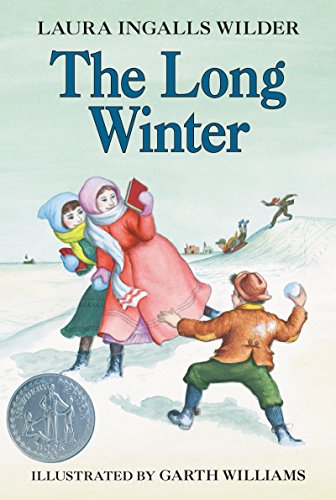
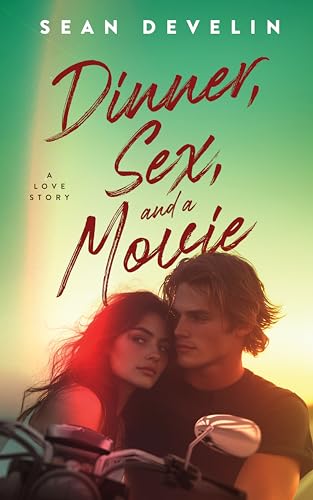

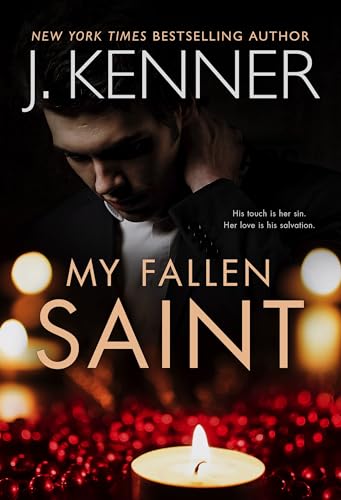
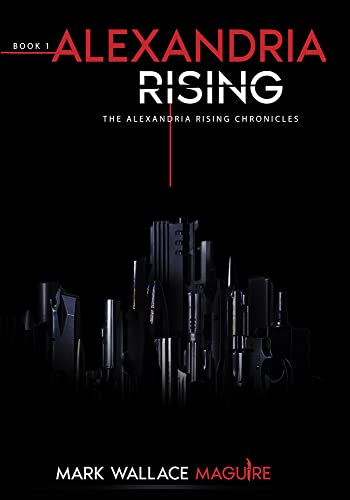

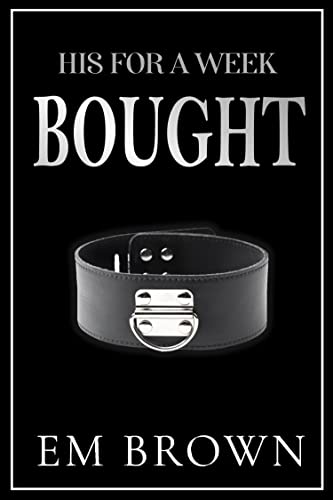

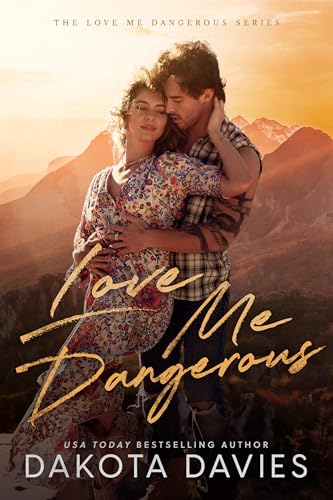
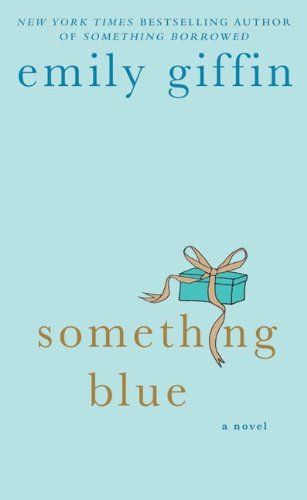




 New York Times best selling author John Locke is the international best-selling author of eleven books in three different genres. He is the 8th author in history to have sold one million eBooks on Kindle, and the first self-published author in history to have done so. Locke has had as many as four books in the top ten at the same time, including #1 and #2. His Donovan Creed thriller series has sold more than 1,200,000 downloads since January, 2011.
New York Times best selling author John Locke is the international best-selling author of eleven books in three different genres. He is the 8th author in history to have sold one million eBooks on Kindle, and the first self-published author in history to have done so. Locke has had as many as four books in the top ten at the same time, including #1 and #2. His Donovan Creed thriller series has sold more than 1,200,000 downloads since January, 2011. Loading
Loading















